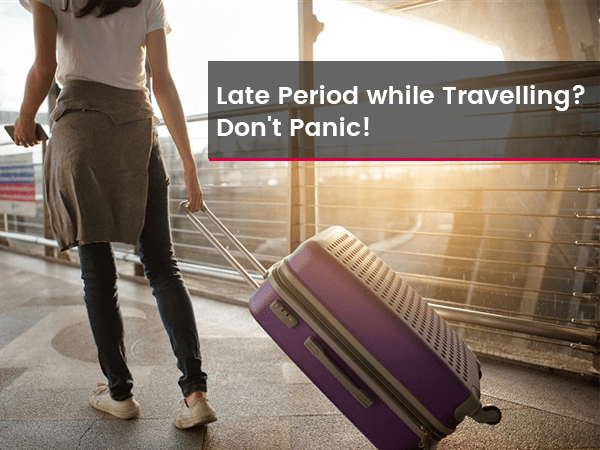If your period has ever come super early or not at all while traveling, you’re not imagining things. Whether you’re crossing several time zones or waking up at the crack of dawn to catch the first flight of the morning, heads up: Any kind of travel can affect the two primary hormones—melatonin and cortisol—that control your cycle.
Even subtle changes to your daily pattern—waking up early one day and then sleeping late the next—can have a small effect on your melatonin levels. So it’s less the flight, and more that the flight has taken you to another destination and time zone.
All the stress involved with traveling, from handling delayed flights to adjusting to a new place, can take a toll on your cortisol levels which may result in irregular periods. There is an evolutionary basis for why this kind of stress affects our cycles, if you’re in ‘fight or flight’ mode, your body doesn’t know whether it has the energy to waste on having a period. We don’t fully understand the brain-uterus connection, but we know that the brain is the first link in the hormonal chain that produces a menstrual cycle.
When the levels of these two hormones in your body change, your ovulation schedule also shifts, making your period come later or earlier than expected. While you can’t do much to change this, women who take the pill as their method of contraception will have to be particularly careful when they travel to new time zones. It is recommended finding the equivalent time in your new destination for when you normally take your pill. If that happens to fall inconveniently in the middle of the night when you will be asleep, pick an earlier time instead of waiting until you wake up. Be sure to consult your doctor before you travel if you have concerns about the timing of your contraception or ovulation before you travel.








,